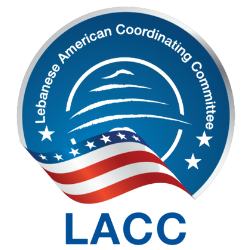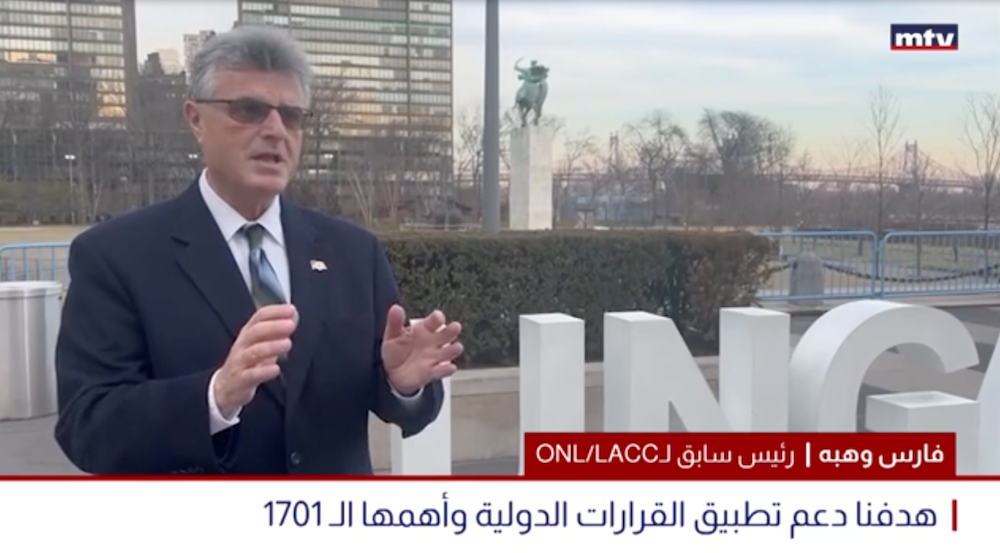Lebanese-American Coordinating Committee
4201 Cathedral Ave NW, # 815 E. Washington, DC 20016
Washington, February 16,2024
The Lebanese-American Coordinating Committee (LACC) Meeting with the US Administration and Congress in Washington DC and the UN Security Council in NY
Lebanon’s Neutrality, Implementing Resolution 1701, Abiding by the Constitution and Restoring Public Institutions by Electing a President.
Within the framework of the Lebanese diaspora efforts in the United States, and following its launch in 2021, the Lebanese-American Coordinating Committee (LACC) organized visits to Lebanon and two intensive tours in Washington (2022/2023), with two strategic retreats to examine the role of the Lebanese diaspora in preserving Lebanon’s identity, freedom, democracy, diversity, and building a free, sovereign, fair, and independent citizenship state. The committee also engaged with the national and diplomatic dynamics of Lebanon’s brothers within the Arab world and its allies in the free world.
As part of its efforts in the United States and after its retreat for evaluations and foresights, the Lebanese-American Coordinating Committee (LACC) recently conducted visits in Washington and at the United Nations in New York (Feb. 5- 10/2024) meeting with officials from the Department of State, the Senate, the Congress and the White House as well as with the Arab League Ambassador in Washington. The committee then traveled to New York, where they met with the Assistant Secretary-General for Middle East Affairs at the United Nations and several Permanent Missions to the United Nations. Additionally, the committee extended condolences to the Irish Permanent Mission to the United Nations for the UNIFIL soldier Pte Seán Rooney who was assassinated in December 2022 in South Lebanon. The delegation further affirmed its appreciation for UNIFIL’s role and cooperation with the Lebanese Army to bolster Resolution 1701 and condemned all attacks against UNIFIL forces by local actors, as well as the recent Israeli attacks.
During its tour, the delegation conveyed clear messages in its meetings, which were consolidated and presented cohesively in a policy paper outlining the following points:
1. Reaffirming Lebanon’s neutrality amidst the ongoing conflict between Israel and Hamas is essential for avoiding catastrophic risks to its people, preserving its historic identity, and fostering opportunities to end the war in the Middle East.
2. Empowering the Lebanese Army (LAF) and maintaining support for its border protection efforts, thereby reaffirming its sole military legitimacy in safeguarding the Lebanese borders while ensuring the enforcement of Resolution 1701, in collaboration with UNIFIL.
3. Recognizing that the current presidential vacancy poses a threat to Lebanese identity. Specifically, rejecting any pathway that does not prioritize the role of Lebanese constitutional institutions, particularly the presidency, in future negotiations and arrangements along all Lebanese borders, as stipulated by the Lebanese constitution and supported by Arab and international resolutions.
Following the meeting in Washington, the committee delegation traveled to New York, where they engaged in comprehensive discussions with various permanent missions to the Security Council and the Deputy Office of the United Nations Secretary-General for Middle East Affairs. After exchanging views on Lebanon’s situation and its challenges, the following conclusions were reached:
1. There is a growing international concern over the escalation of the conflict in Gaza, which poses significant risks to Lebanon. Consequently, there is an urgent call for concerted diplomatic efforts to deter Israeli aggression, urging all parties to adhere to Resolution 1701 and uphold the exclusive sovereignty of the Lebanese army over Lebanese territory.
2. The urgency to elect a president for the republic lies in prioritizing the interests and national security of the Lebanese people within Lebanon’s constitutional framework, while ensuring that no compromises are made at the expense of Lebanon’s sovereignty and Long-term stability.
There is a notable emphasis on sustaining support for the Lebanese army and maintaining confidence in its capabilities to fulfil its role without engaging in partnerships with illegitimate non-state actors. UN Security Council members, in turn, affirmed their commitment to halt the destabilization of the Middle East and to eradicating all forms of extremism and exclusion while upholding the principles of democracy, justice, and liberal values highlighting the positive and critical role that Lebanon can contribute to this endeavor.
The Lebanese-American Coordinating Committee (LACC) represents the following organizations: The American Lebanese Policy Institute – Political Action Committee (ALPI-PAC), Assembly for Lebanon (AFL), Lebanese American Renaissance Partnership (LARP), Lebanese for Lebanon Foundation (LFLF), Lebanese Information Center (LIC), Our New Lebanon (ONL), Shields of United Lebanon (SOUL), and World Lebanese Cultural Union (WLCU), as well as the Civic Influence Hub (CIH) that serves as the Lebanese Advisory Organization.
LACC Member Organizations
- The American Lebanese Policy Institute – Political Action
- Committee (ALPI-PAC)
- Assembly for Lebanon (AFL) Lebanese American Renaissance Partnership (LARP)
- Lebanese For Lebanon Foundation (LFLF)
- Lebanese Information Center (LIC) Our New Lebanon (ONL)
- Shields of United Lebanon (SOUL) World Lebanese Cultural Union (WLCU)
- Lebanese Advisory Organization Civic Influence Hub (CIH)
Advisory Baord
- Thomas Abraham
- Abbas Dahouk, Col. (Ret.) US Army General Khalil Helou
- Hanin Ghaddar
- Wajih Kanso, Ph.D
- Philip Salem, M.D.
- Stephen Stanton, Barrister

